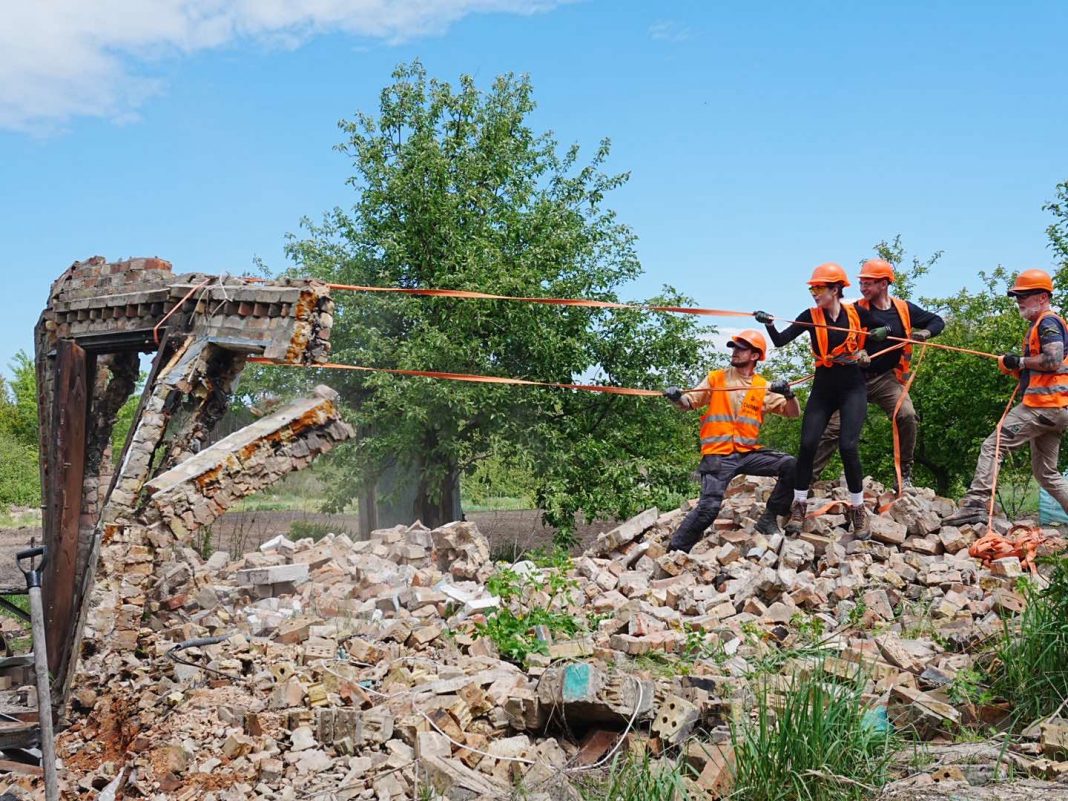Texts and photos by Monsi A. Serrano
In Ukraine, everyone has a role to play. As Russia intensifies its brutal aggression against Ukraine, it not only betrays Ukrainians but also the global community—violating the 1994 Budapest Memorandum on Security Assurances.
Under the Memorandum, Russia, along with the United States and the United Kingdom, pledged not to use or threaten to use nuclear weapons against non-nuclear-weapon states like Ukraine. At the time, Ukraine had inherited the world’s third-largest nuclear arsenal from the Soviet Union, which it gave up in exchange for these security guarantees.
But those assurances were shattered on February 21, 2014, when Russia invaded and illegally annexed Crimea, claiming historical and cultural ties to the territory—echoing China’s baseless “nine-dash line” claims in the West Philippine Sea.
(The Permanent Court of Arbitration in 2016 ruled against China’s claims, stating that so-called “historical rights” cannot override international law.)
The full-scale war and its impact
Uncontented with Crimea, Russia launched a full-scale invasion of Ukraine on February 24, 2022—the largest armed conflict in Europe since World War II.
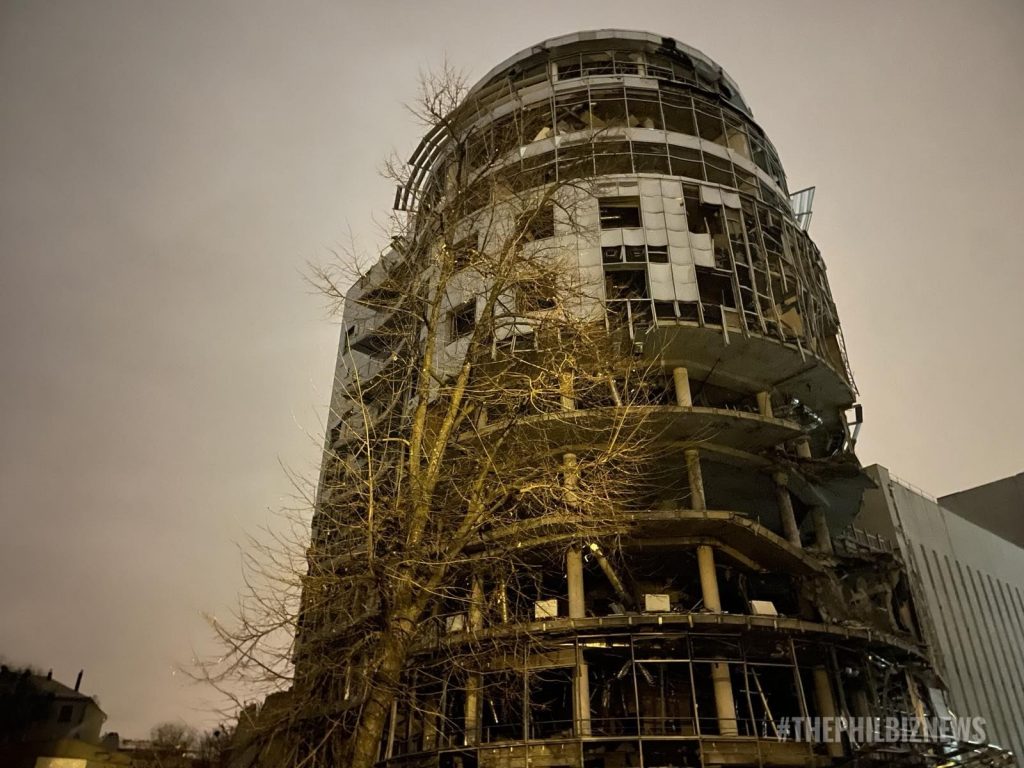
The war has caused widespread death and destruction. Civilians have suffered torture, inhumane treatment, and sexual violence. Cultural landmarks, residential buildings, churches, hospitals, and schools have been reduced to rubble in blatant violation of the Geneva Conventions—destruction I personally witnessed during three years of visits to Ukraine.
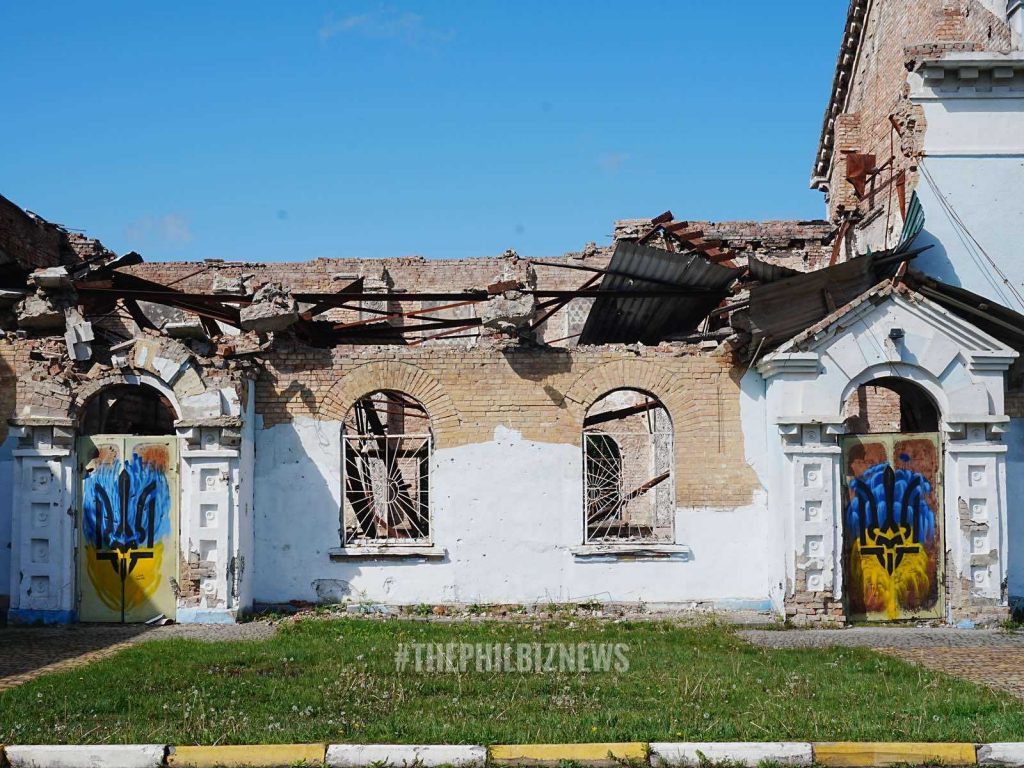
The toll is staggering: hundreds of thousands killed, millions displaced, economic ruin, and a refugee crisis that spans Europe. Ukrainian children continue to live in fear, constantly interrupted by air raid sirens and forced to take shelter underground. For them, this trauma has become the norm.
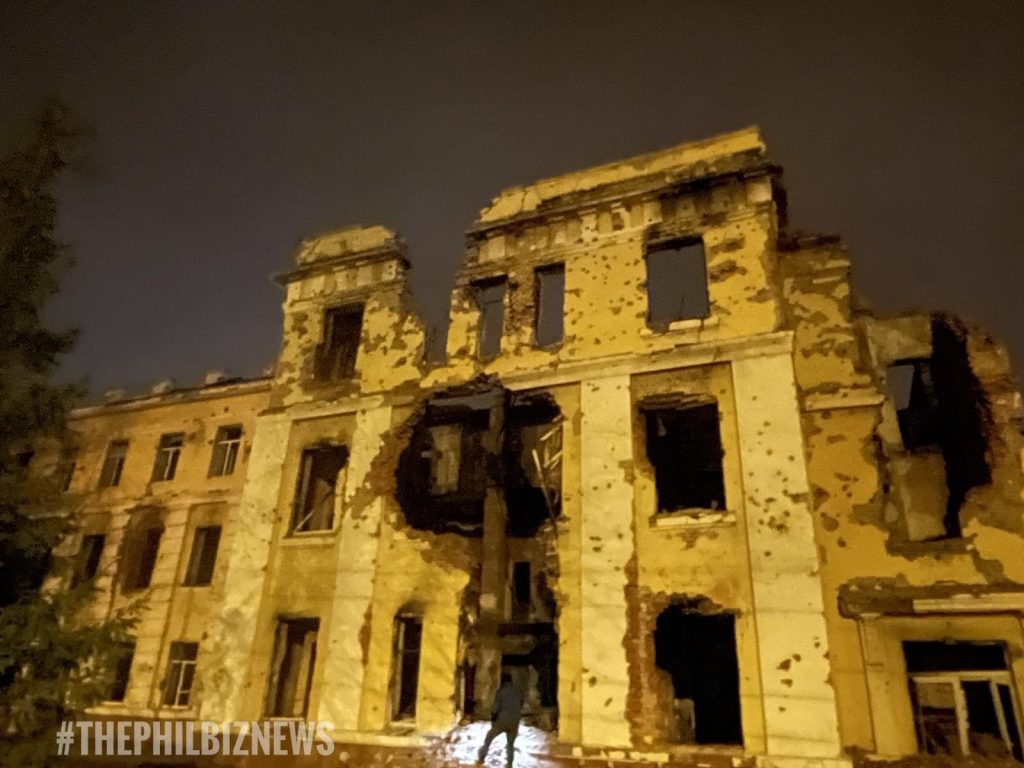
In 2020, at the height of the pandemic, we thought wearing a face mask was the “new normal.” But that pales in comparison to Ukraine’s reality. According to the Ukrainian Air Force, Russia has launched 1,451 drones and 78 missiles in recent months, even damaging the Saint Sophia Cathedral—a UNESCO World Heritage site we visited in May. The cathedral is now listed by the UN as a heritage site “in danger.”
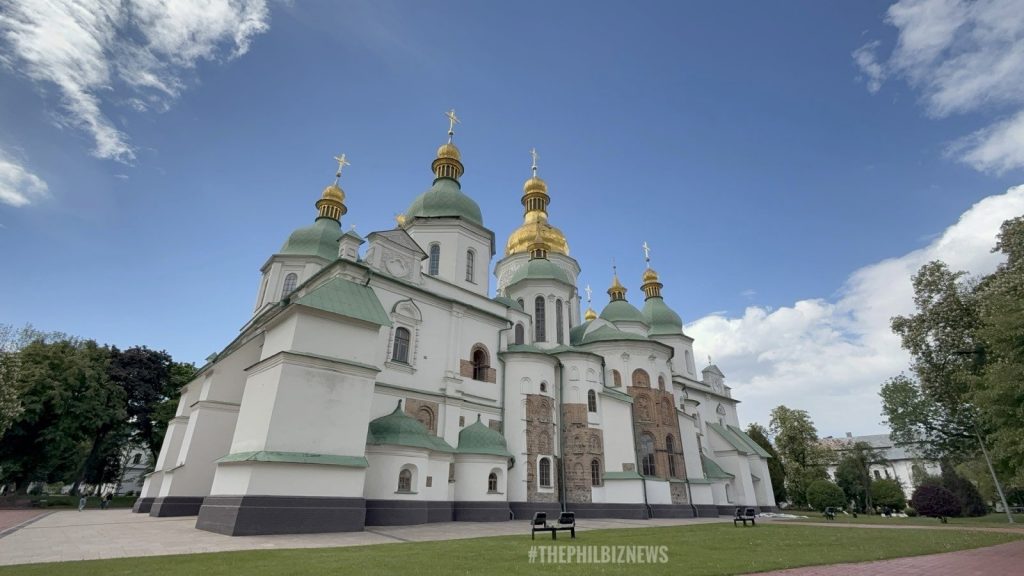
The silent heroes, brave to build
While bombs fall, a different kind of battle is being fought—one of resilience, not revenge. Just three months after the invasion, a group of volunteers formed a charitable foundation called Brave to Rebuild, with the mission to “Build Back Better.”
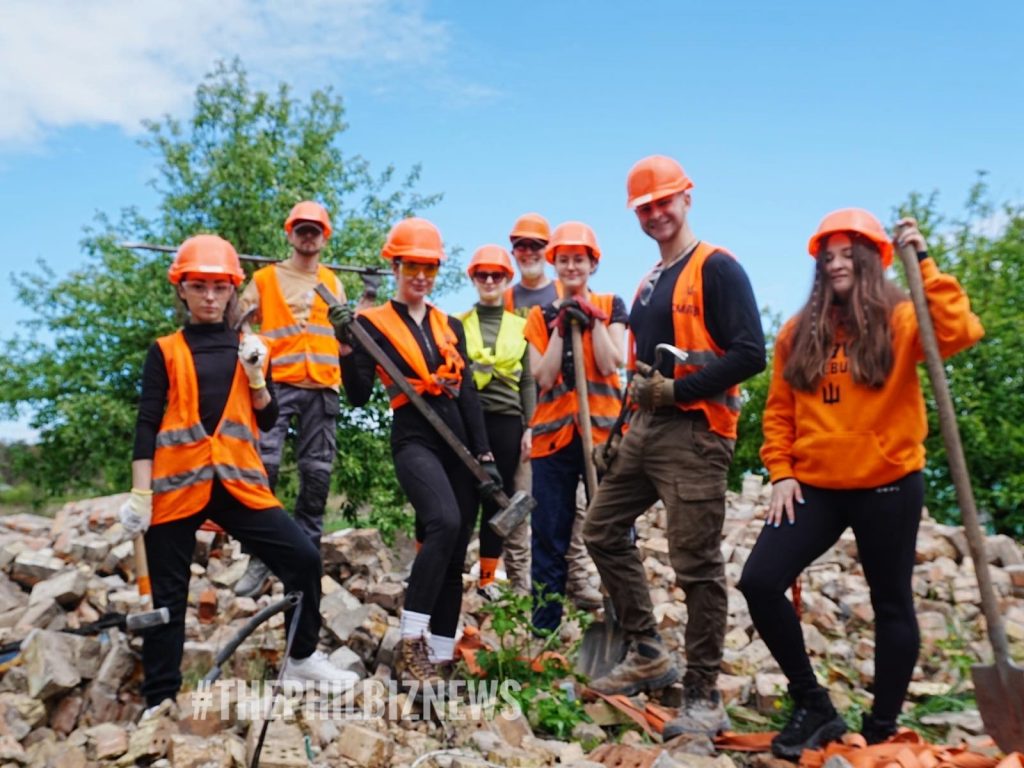
I met some of these incredible volunteers during the Internews Ukraine Media Tour in Kyiv. They are Ukrainians and internationals—architects, builders, and everyday citizens—rebuilding homes, schools, hospitals, and cultural spaces.
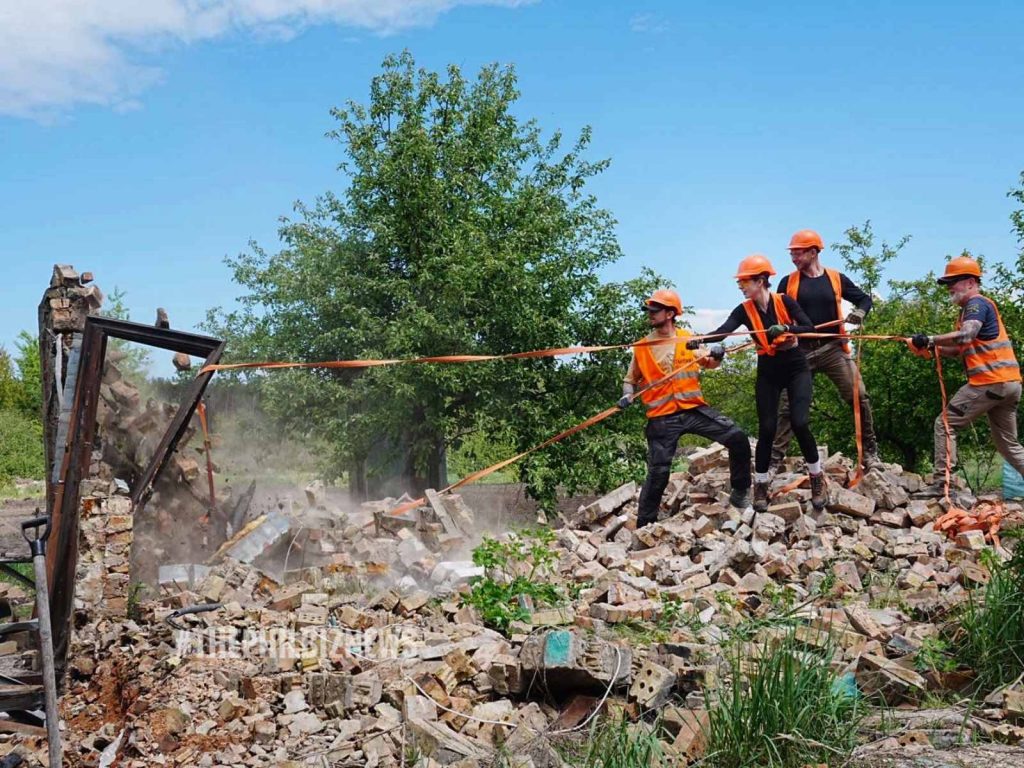
Working without heavy machinery, they rely on manual labor. They demolish, dig, carry debris, and reconstruct structures—brick by brick. At their site in Kyiv, strict safety protocols are enforced for both workers and visiting media, including wearing helmets and reflectorized vests.
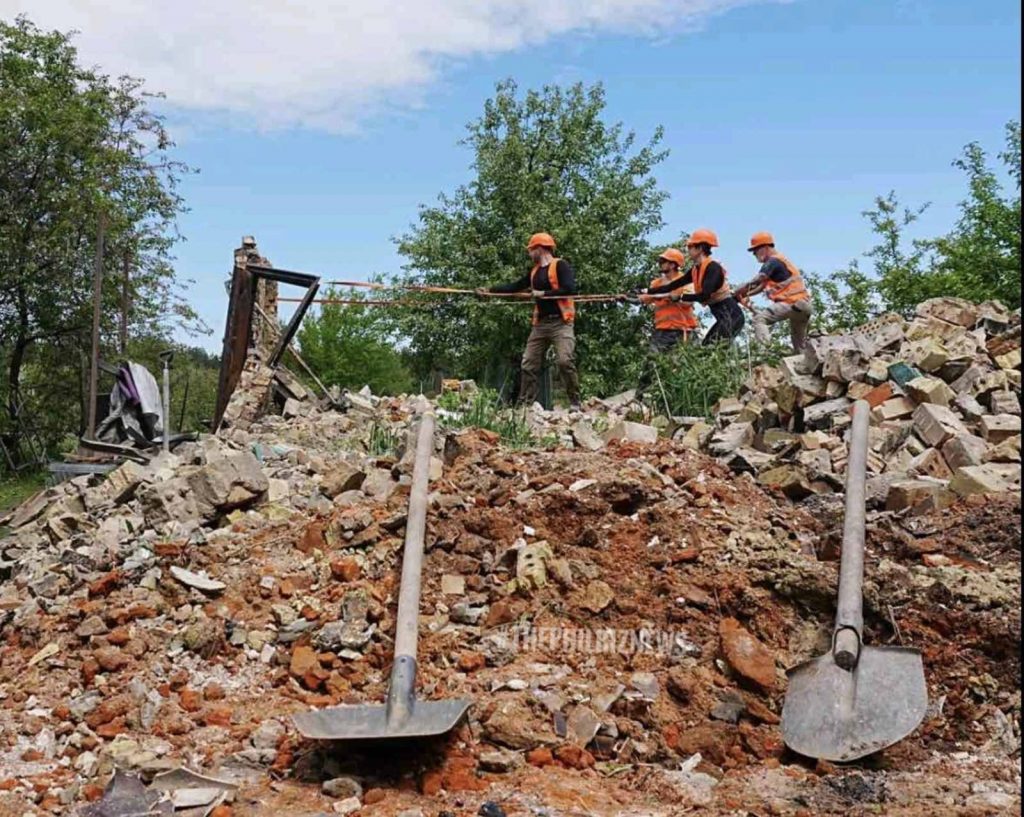
Brave to Rebuild fosters a safe and inclusive space. “They have zero tolerance for gender bias, racism, or discrimination,” said one female volunteer. “Even though the tasks are physically demanding, we feel empowered.”
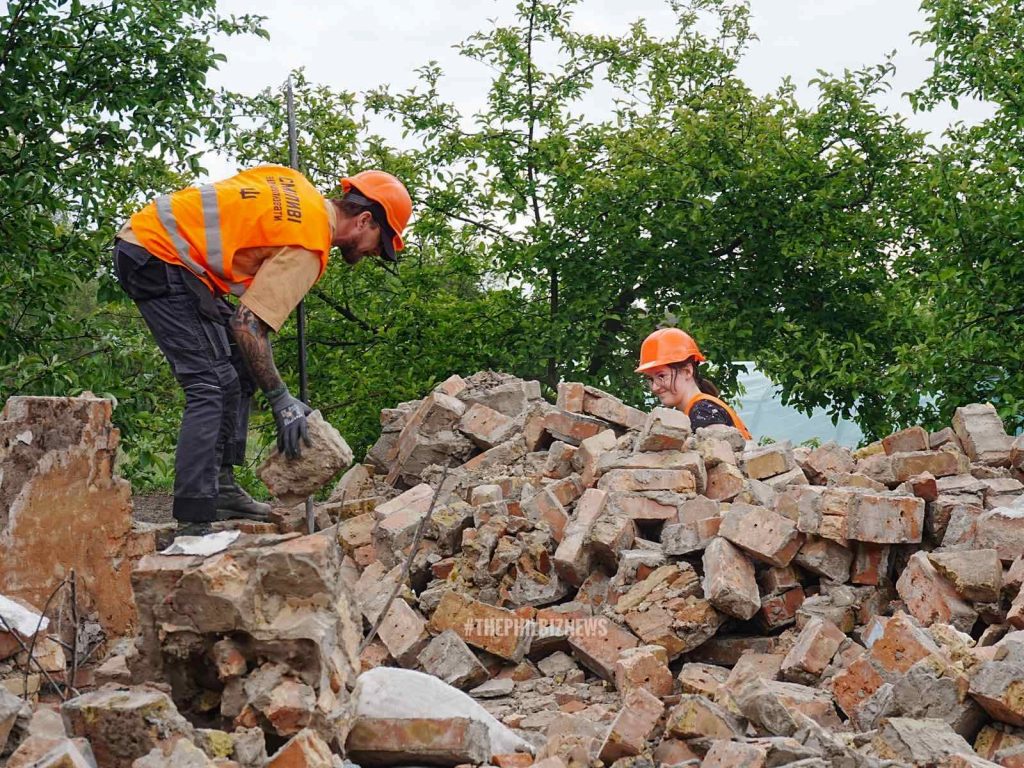
Asked why she joined, one volunteer told me: “This is my small contribution to make Ukraine a better and safe place for the children and the elderly who lost their homes. It is not easy and it will take time. But what is fulfilling for me is I am doing something worthwhile, not just observing.”
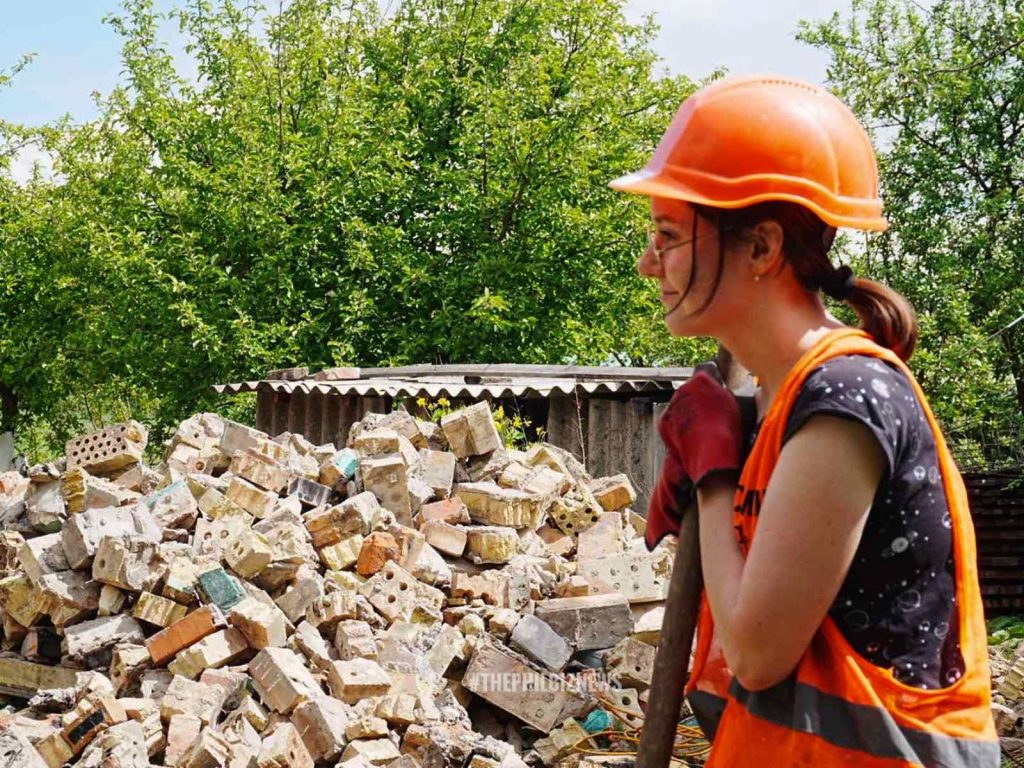
Another added: “All of us volunteers share the same values. Ukrainians have such a positive attitude. They don’t wait for things to collapse—they act. We’re here to give them hope, especially the children whose world was turned upside down. Russia already has a huge country—why do this? Destroying homes, schools, hospitals… It’s really crazy and scary.”
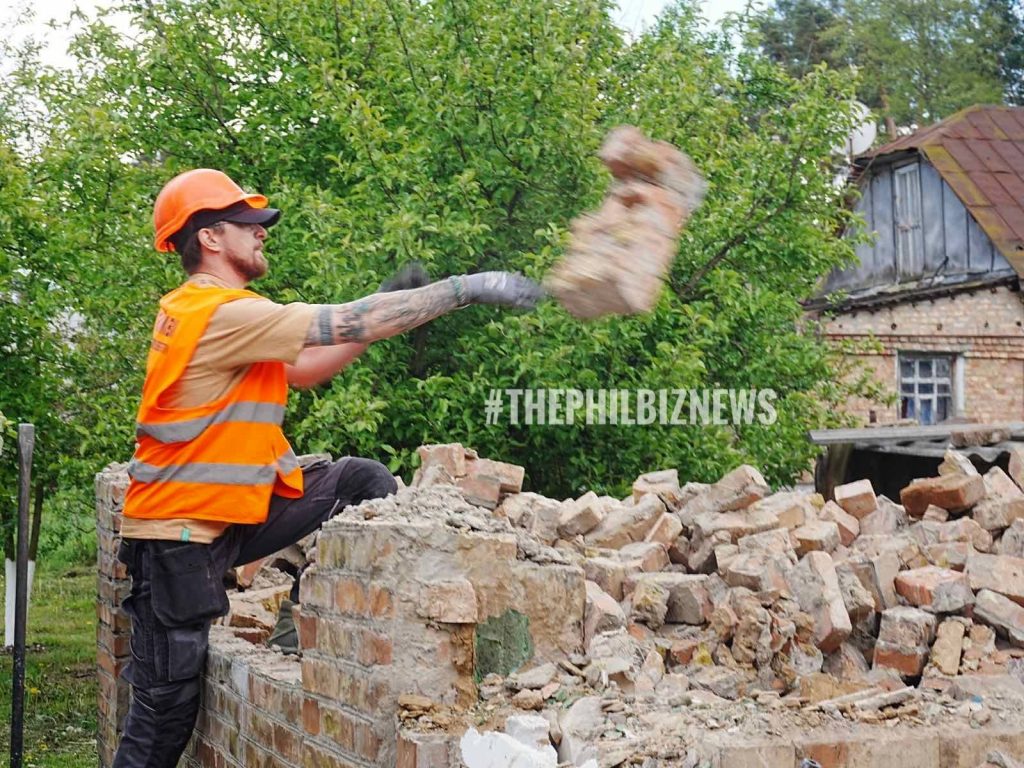
Building a future from rubble
Each volunteer takes on different roles—demolishing buildings, clearing debris, restoring interiors, or organizing volunteer events (“tolokas”). Over time, Brave to Rebuild has evolved into a professional team working across Ukraine: Kyiv, Chernihiv, Kharkiv, Kherson, Mykolaiv, Odesa, and more.
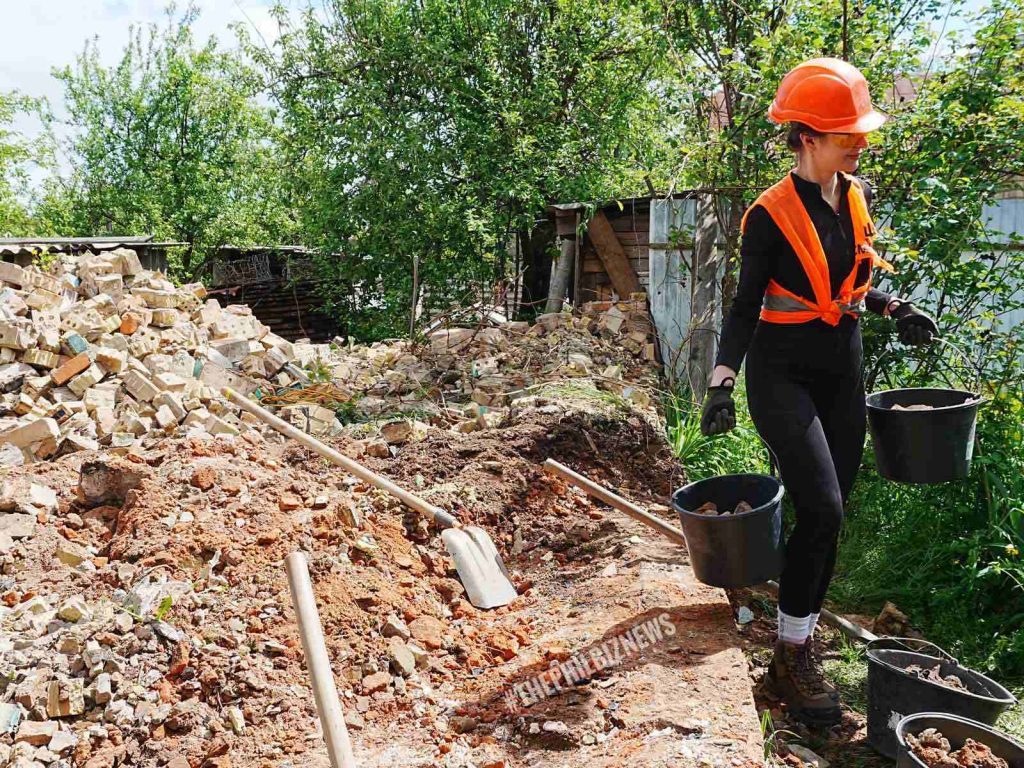
With over 2,000 volunteers from Ukraine and abroad, they’ve cleared more than 300 areas, restored nearly 200 homes, removed over 500 truckloads of waste, and built around 200 dog shelters for animals displaced by the war.
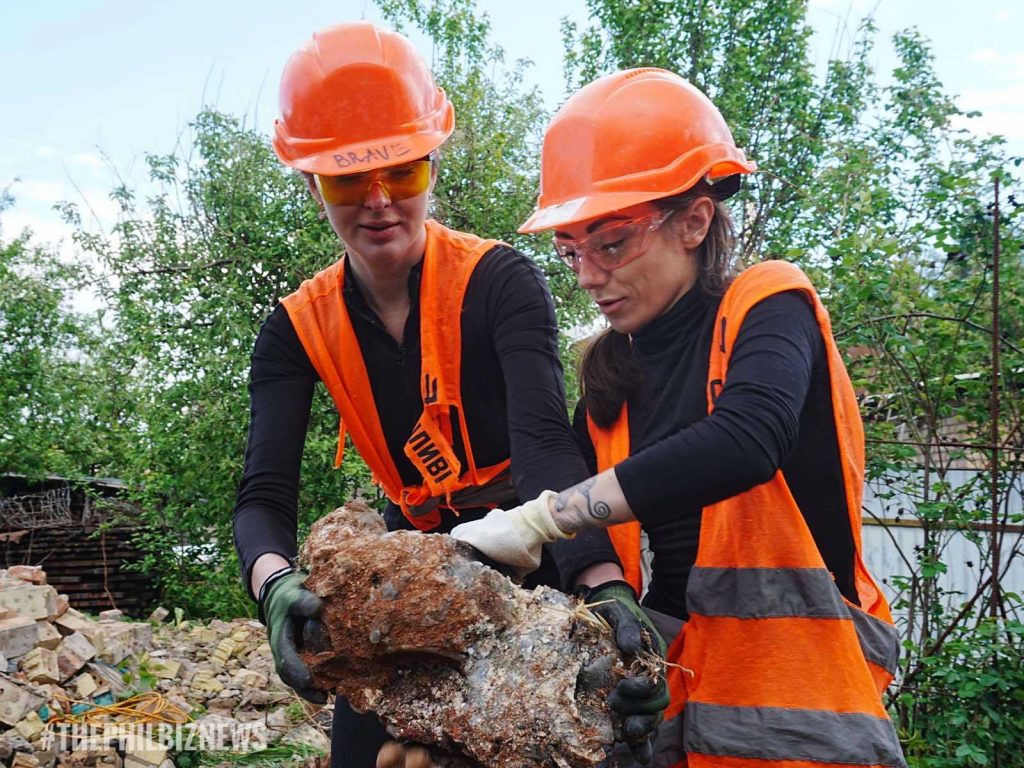
Volunteer efforts continue every weekend, while specialists handle major repairs of schools, hospitals, and administrative centers. Despite the physical and emotional toll, the spirit of service remains strong.
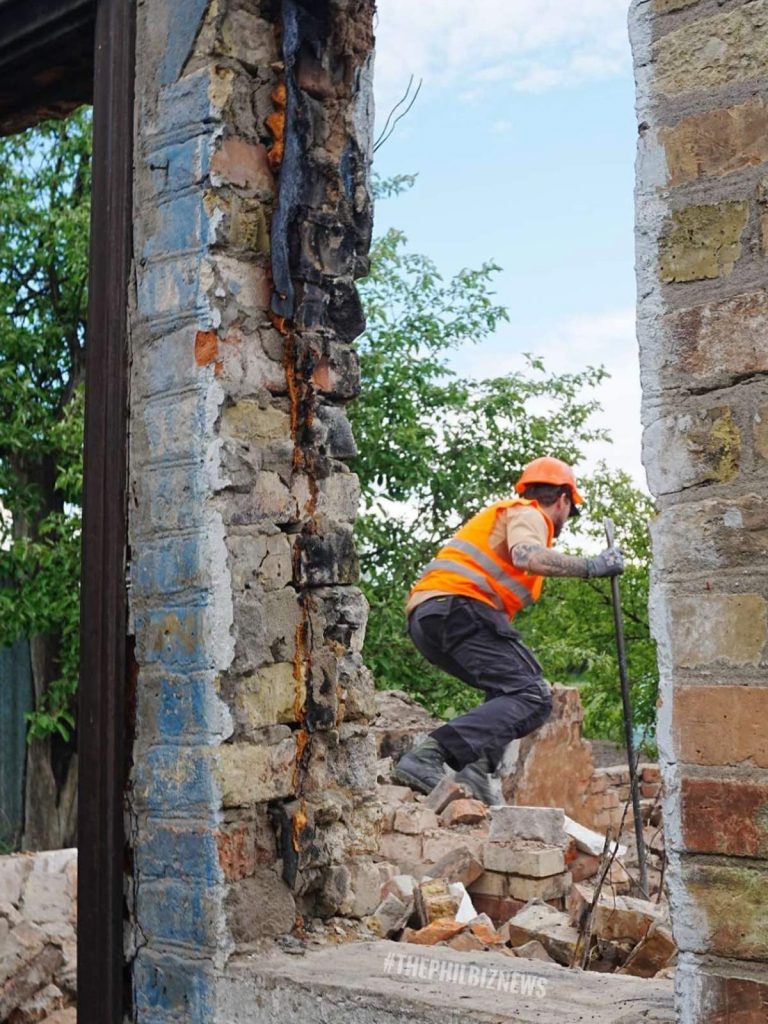
“We are not just here to rebuild,” said Alyona Krytsuk, Co-Founder and Chair of the Board of The Brave Foundation.
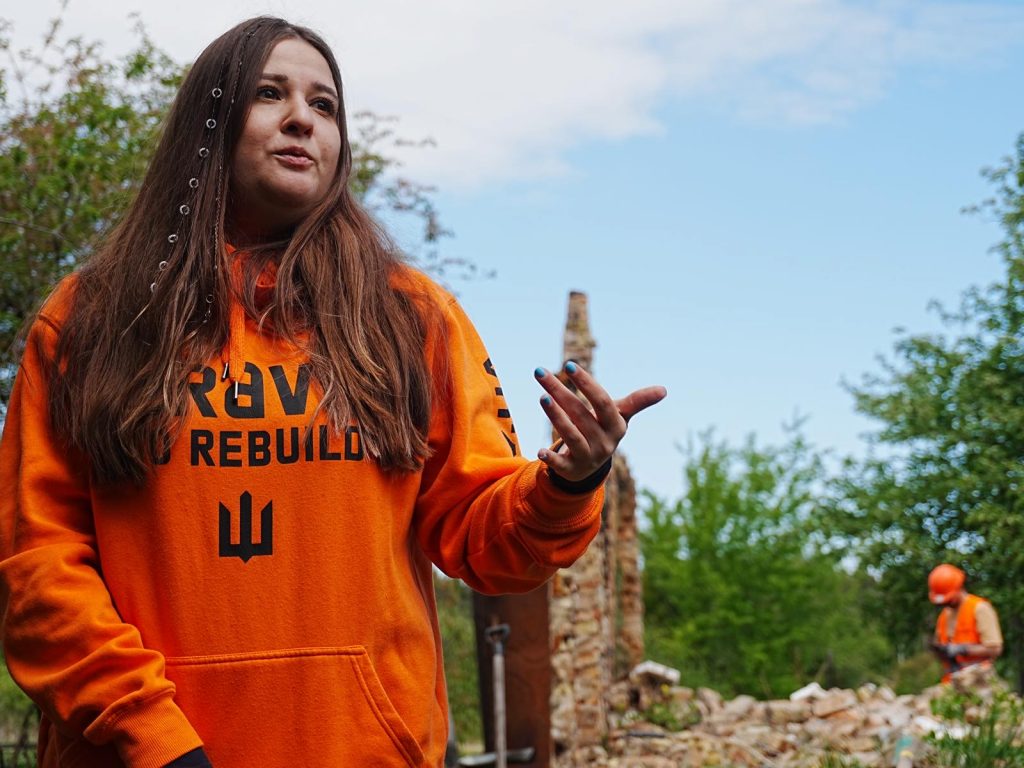
“All of us are here to ensure that we create safe living conditions for the Ukrainians affected by the illegal invasion. We may start small, but even with volunteer work, we are proud of what we’ve accomplished.”
Vitaly Selyk, Co-Founder and Director, echoed her sentiments: “Volunteerism is heroism for me. Those who should be resting on weekends choose to help. They’re not only brave—they’re selfless.”
He added: “This world would be better if we stopped being selfish and cared for others. Peace in Ukraine means peace for the world. We will not stop, even after peace is achieved. Brave to Rebuild will continue to inspire and support Ukrainians.”
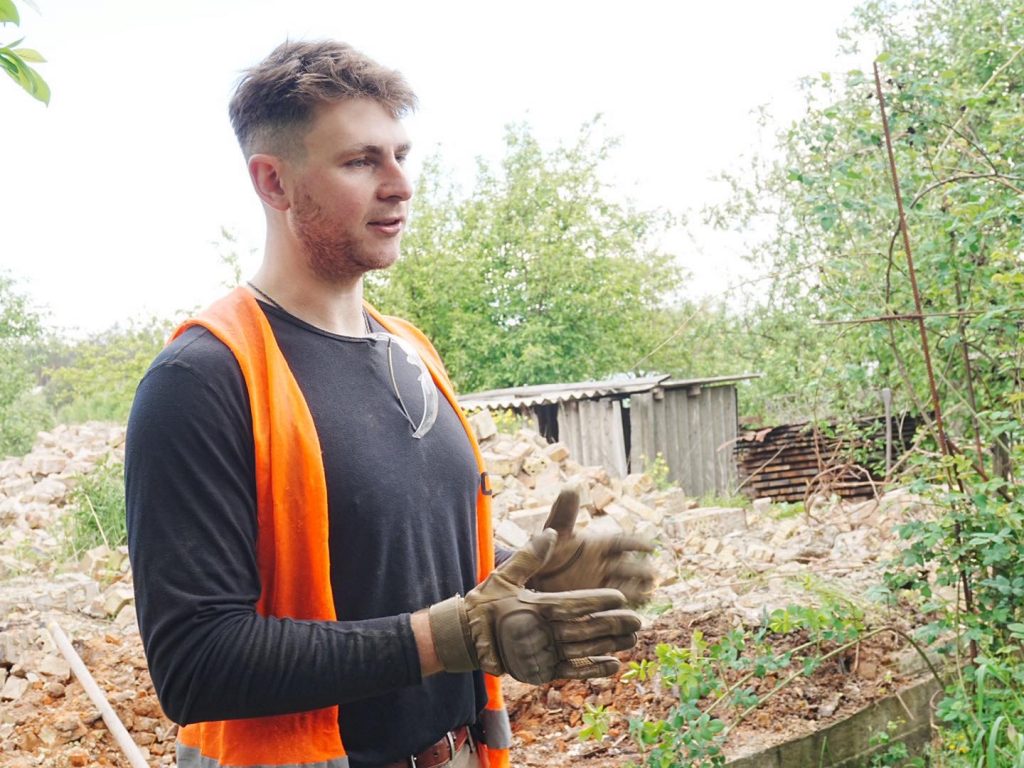
“This world will be a better place to live if we stop being selfish and care for others, and in doing so, we create a peace in this world, and we hope that Ukraine will soon get the much deserved peace, because it’s not only Ukraine that is hurting, the whole world because of one’s person’s selfishness at the expenses of Ukraine and its people. We will not stop doing what we started, even when peace in the world is attained. Brave To Rebuild will be there, to inspire and build not just homes, schools, hospitals and other structures. We will be here to be one of the sources of inspiration of the Ukrainians,” Vitaly added.
Global support for a grassroots movement
Brave to Rebuild is supported by a wide network of partners including the European Union, GIZ, USAID, HELVETAS, U-LEAD with Europe, Razom for Ukraine, HELP, the Prague Civil Society Center, GlobalGiving, DanChurchAid, and Norwegian Church Aid.
Private sector partners also play a role: Beetroot Tech Relief Fund, Zeilen Van Vrijheid (The Sails of Freedom Foundation), Вчасно, EVO Company, and EDNANNIA.
From war-torn cities to international solidarity, Brave to Rebuild is not just rebuilding structures—it’s restoring dignity, purpose, and hope for a people who refuse to be broken.



